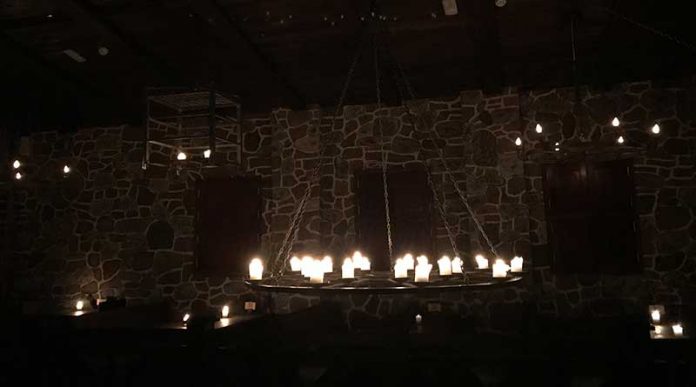
Through food, entertainment and interior design, the Viking restaurant transports customers to experience the age-old Viking culture.
By Poojaraj Maniyeri
The smell of food wafted through the place, the medieval air hitting me as soon as my car pulled up near the area. A fiery signboard signaled the restaurant’s bold atmosphere even before I stepped in. Pushing the doors open, an array of weapons and people dressed in medieval clothing greeted me.
The Viking restaurant was established in November 2021 and is the first of its kind in the United Arab Emirates. A customer, Sabiha Ameen, said that the contrast of the restaurant with its immediate vicinity took her back in time.
“Their diet was very rich, almost like a primordial modern cuisine,” Cuci remarked.
Ivo Cuci, the executive manager of the restaurant, has worked in the hospitality sector around the world. He said that the restaurant’s aim was to provide “new amusement to the guests.” Cuci added that creating the Viking restaurant was a challenge as everything had to be built from scratch, but the idea was very exciting as it was “unique and exceptional in the UAE.”
The sound of music filled the air and a performer appeared out of the shadows. Her silhouette illuminated by fire cast dancing shadows on the place. Artists from different places around the world join to recreate the Viking culture. Cuci added that the highest quality entertainment was ensured through a strict selection process.
Ameen thought that the fire show and the music were a “creative use of space as well as a form of entertainment.”
Cuci said that the fire dancer had “fluid movements that match the music and at the same time, the concept.”
The fire dancer is accompanied by a band of musicians performing pieces designed to capture the spirit of Viking entertainment.
Cuci said that the restaurant is known not just for the food or even the music, as the two go together to ensure guests “experience a full immersion” into the culture.
Cuci emphasized that the restaurant wants people to “experience 360 degrees of real medieval cuisine” and aims to “build unique plates that you cannot find in other places.”
To achieve this, Cuci worked along with the chef, studying the food, dietary practices and cooking techniques of the Vikings. From books and online sources, he discovered that Viking medieval cuisine was different from normal medieval cuisine in Europe at the time.
Normal medieval cuisine followed rules such as using only certain ingredients, and some food being eaten exclusively when hot. However, Viking cuisine had no such restrictions, and incorporated food from different cultures, which they were exposed to during their conquests, added Cuci. The Vikings also ate everything that was accessible, including fish from the seas, wild animals from the forest, vegetables and fruits.
This variety of ingredients made Viking cuisine “very easy to work with,” Cuci said.
Cuci recognized that few people knew that the Vikings also ate vegetables and hence one of the dishes in the restaurant is named “Vegetarian for a Viking?” The restaurant menu can be accessed digitally through a QR code on the table, and reveals more food that reflect the Viking spirit. “Pumpkin for the Warriors,” “Onion Soup for the King” and “Longhouse Chicken” are some of these dishes.
Cuci stated that the restaurant is built to resemble the Viking Longhouse, in the middle of which was a “fire covering the length of the house” around which the Vikings sat, cooked and ate together.
Apart from the food, the Viking restaurant also differs from other restaurants in the cutlery and attire of the staff. Traditional Viking horns, heavy bowls, candle lighting, customized forks and knives all contribute to the atmosphere of the restaurant.
“It is something that looks ancient, but at the same time it will be a cutlery that you can use to eat,” said Cuci.
When the restaurant opened, it was “looking to the horizon and seeing a lot of possibilities,” according to Cuci. It continues to do so today.

















